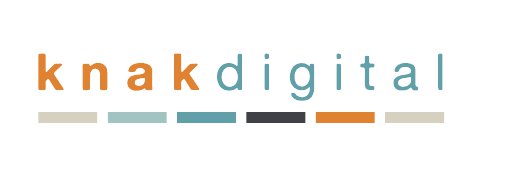The frantic world of hiring can feel like a constant scramble to fill open positions. If you are in a position of interviewing and hiring talent, you may already have an increased workload, an understaffed team, and delayed projects. Identifying and hiring for your team vacancy is a priority, and a recruiter can alleviate and help fill those open positions.
How do you kick off the recruitment process? It’s easy to fall into a transactional relationship with your recruitment partners, like handing them the job description and telling them to send you resumes of applicants who fit the requirements.
But what if there’s a better way? Imagine a scenario where recruiters aren’t seen as mere “order takers,” tasked with delivering resumes that may or may not fit the bill. Instead, what if they were viewed as strategic partners, bringing valuable expertise and market knowledge to the table?
The D-Grade Partnership: A Recipe for Frustration
Let’s be honest, we’ve all experienced (or witnessed) the pitfalls of a disjointed hiring partnership. It starts with a lackluster kick-off meeting where the hiring manager simply throws a job description at the recruiter and walks away. Communication becomes a one-way street, with the hiring manager offering little to no feedback on submitted candidates. There’s no discussion of market trends, interview best practices, or even a sense of urgency to move forward. Ultimately, the hiring team views the recruiter as a glorified resume delivery service, a perception that generates inefficiency and frustration for all parties involved.
A Better Recipe: Collaboration is Key
The true power of recruitment lies in collaboration. When hiring managers and recruiters join forces as allies, their combined expertise leads to a far more successful outcome. This collaborative effort translates into:
- Kick-off meetings with substance: These meetings go beyond just the job description. All stakeholders in the hiring process should be present, which could be the hiring manager, HR, interviewers, and recruiter/talent acquisition. The “5 W’s” (who, what, when, where, and why) should be asked about the role, going beyond just the needed skills for the job. What are the key characteristics of prior or current top performers in the company now? Does everyone agree with how the job description is written? Has the budget been approved?
- Explore valuable market intelligence and data: Are there any reports on average salaries for the position? How many potential candidates possess that skill set in the desired geography? What is the supply and demand of that skill? Is there any prior data from a prior search regarding time-to-fill, source of hire, etc.
- Define Interview Stages and Evaluation: What is the interview plan? To evaluate candidates fairly, what consistent questions will be asked to evaluate the candidates? Are the interview questions crafted to assess the skills and experience of the candidate (rather than subjective brain-teasers)? Will a scoring rubric be used? What is the number of interviews for the entire process and what type of interview will each step be (phone, video, panel, one-on-one)? Who will be involved in the interviews and are they committed to allocating time in their schedule? Is an assessment necessary and what is the objective of using it?
- Define clear expectations of communication: What is the preferred means of communication and frequency? If you are using an ATS system for scorecards, should all communication be kept internally? Are there project management tools that are integrated into scheduling? Will you be using a scheduling tool to book interviews?
- A feedback loop that fuels success: Open and constant communication is crucial. Hiring managers should provide timely feedback on submitted candidates. This allows the recruiter to refine their search strategy and tailor their recommendations.
- Decision-Making Criteria: Who is the final decision-maker in the hire? Will reference checks and background check be contingent on an offer? What is the projected start date? Who will be responsible for onboarding?
Building Trust that results in Success
A great recruiter brings so much more to the table than simply matching resumes to job descriptions. Recruiters are “in the weeds” all day, conducting research and utilizing a variety of resources to source prospects, reviewing resumes, having conversations with professionals in the field, and gathering intel in real-time. Please see them as more than a resume-slinger, but as an expert who possesses a deep understanding of the current job market, including salary trends, talent pools, and in-demand skills. . By leveraging this expertise and leaning on your recruiter as a trusted advisor, you can discover a more efficient hiring process that saves you time and company resources.
The most successful hiring partnerships are built on trust and mutual respect. When hiring managers recognize the value recruiters bring beyond basic resume delivery, a synergy is created. This collaborative approach fosters a positive candidate experience, reduces hiring timelines, and ultimately leads to the acquisition of top talent – a win-win for everyone involved.
So, the next time you have an open position, don’t settle for a transactional relationship with your recruitment partner. Embrace collaboration, tap into their expertise, and optimize your recruitment strategy for success.
- Update Your LinkedIn Visibility and Information: Quick tips to a Findable Profile
- Is Your Recruitment Strategy Leveraging the Power of Recruiters?
- Optimizing Job Searches: How UTMs and Data Analytics can Boost your Search
- Unlock the Offer: The Strategies 100 LinkedIn Users Applied to Land Interviews that Led to Offer
- Demystifying ATS: Smashing Myths and Writing an Optimized Resume

